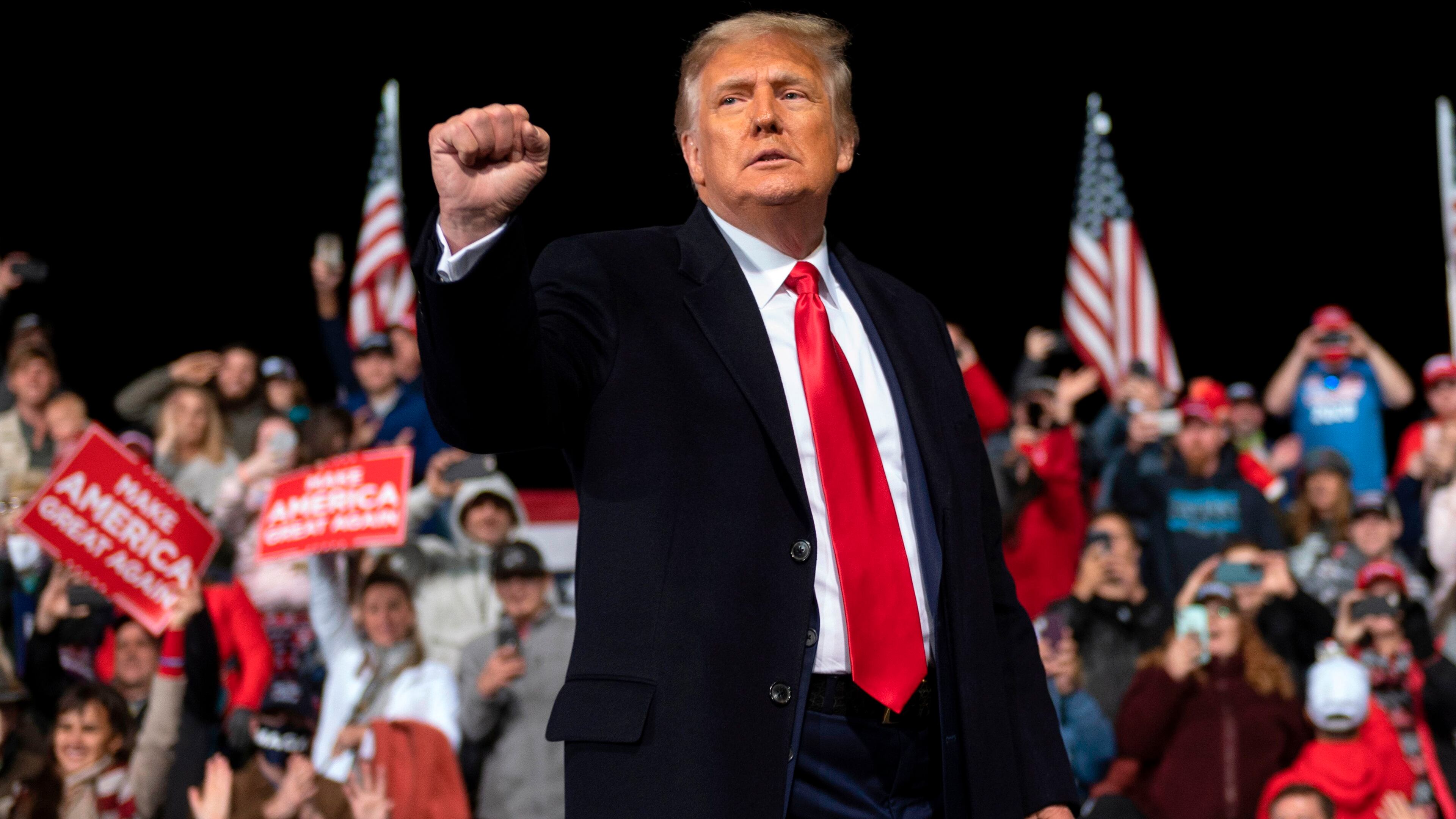OPINION: Donald Trump is innocent until proven guilty

When Special Counsel Jack Smith announced the federal charges against former President Donald Trump last week, he saved the most important part for last.
“I must emphasize that the indictment is only an allegation and that the defendant must be presumed innocent until proven guilty beyond a reasonable doubt in a court of law,” Smith said.
I would have put that part upfront. Because despite the hot takes, Googling arm-chair experts, and genuinely troubled onlookers, the presumption of innocence for Trump is a crucial guarantee in our criminal justice system.
It applies equally to everyone accused, from an alleged gang member to a former president, and it’s the difference between American courts and Russian show trials. If you are one of the millions of Americans worried about the strength of our Democratic institutions, the presumption of innocence is a bedrock of the justice system our Democracy stands on.
Presuming that Trump is innocent of a crime will be just as important in Georgia. We could know as soon as next week whether Fulton County District Attorney Fani Willis will indict the former president for attempting to overturn his 2020 loss here. But we won’t know for months or years whether he actually broke Georgia’s criminal code when he did it.
Not having that answer may not be satisfying, but it’s how the system works. In fact, some of the most famous recent trials of American public officials have ended in acquittals, even when the facts seemed stacked against the accused.
Former Democratic Sen. John Edwards was charged with campaign finance crimes after donors paid nearly $1 million to support his secret, pregnant mistress during his 2008 campaign for president. But a jury later found Edwards not guilty of one charge and deadlocked on the other five, which led to a mistrial.
Former Virginia Gov. Bob McDonnell, a Republican, was charged and convicted on federal corruption charges after donors paid for luxury gifts and even part of his daughter’s wedding. But the U.S. Supreme Court unanimously overturned McDonnell’s conviction on appeal.
At the time, Chief Justice John Roberts described McDonnell’s conduct as “tawdry,” but said the trial itself made it impossible to fairly judge whether the former governor broke the law.
Even former GOP House Majority Leader Tom Delay, who was convicted in 2010 on money laundering and conspiracy charges, had his conviction overturned three years later on appeal.
Other politicians in both parties have gone to jail for the crimes they committed, but only after their days in court. Former U.S. Rep. Anthony Weiner, a New York Democrat, served 18 months in federal prison after he pleaded guilty to sending explicit photos to a minor.
And former House Speaker Dennis Hastert served 13 months in prison after he pleaded guilty to a hush-money scheme to pay off a young man Hastert had molested decades earlier.
As egregious as those cases were, nothing compares to the scope of the potential Georgia case against Trump, nor the gravity of possibly sending a former U.S. president to state prison. And unlike federal charges, Georgia law won’t let a president or governor simply issue a pardon to Trump later. He could be looking at real jail time if he is charged and convicted. And he is unlikely to be the only person implicated.
More than 20 others were named as targets of Willis’ investigation. Several were Trump’s lawyers, including former New York City mayor Rudy Giuliani. But others were Georgia Republicans who helped Trump in his efforts to flip the election results. They are people’s neighbors, parents, and friends and would all deserve the presumption of innocence, just as Trump does.
Even as Willis makes her final decision, the 2024 presidential election is getting closer every day. That means that voters are likely to judge Trump before a jury ever does. And the question for voters won’t be whether what Trump did was legal, but whether it was right.
By now most voters have heard the recording of Trump’s call in January 2021 to Secretary of State Brad Raffensperger, telling him he needed to “find 11,780 votes to win” and rattling off false fraud claims that Trump’s Justice Department had repeatedly told him weren’t true.
The world watched live as Giuliani wrongly testified at Georgia committee hearings that two Fulton County poll workers, Rudy Freeman and Shaye Moss, had rigged the election for Biden — a claim he recently acknowledged was false.
Reporters published photos of Republican electors meeting at the state Capitol, originally behind closed doors. to cast their votes for the former president, even though Biden had been certified as the winner in Georgia. An email from a Trump campaign aide warned the Trump electors to use “complete secrecy and discretion” when entering the Capitol that day.
And we all saw Gabriel Sterling from the secretary of state’s office practically beg Trump to call off his angry supporters, who believed what he was saying about Georgia’s elections and were threatening local officials and poll workers.
“Someone’s going to get hurt, someone’s going to get shot, someone’s going to get killed,” Sterling said.
Trump responded to Sterling on Twitter, “Rigged Election….Expose the massive voter fraud in Georgia!”
As Willis’ case has advanced, Trump has claimed at every turn that he won in Georgia in 2020, which he did not. He has attacked Willis in public and recently cut a campaign commercial with her image and lewd rumors, too. He hasn’t stopped, changed, or apologized.
Many already think that what Trump did in Georgia was despicable. They think it was wrong and fundamentally un-American. But also presuming that Trump is innocent of a crime until he is proven guilty is as American as it gets.



